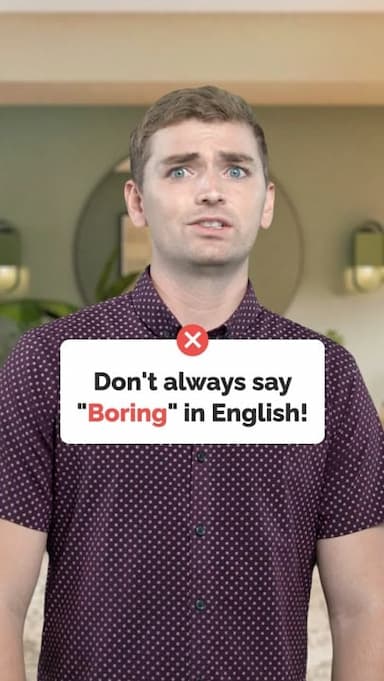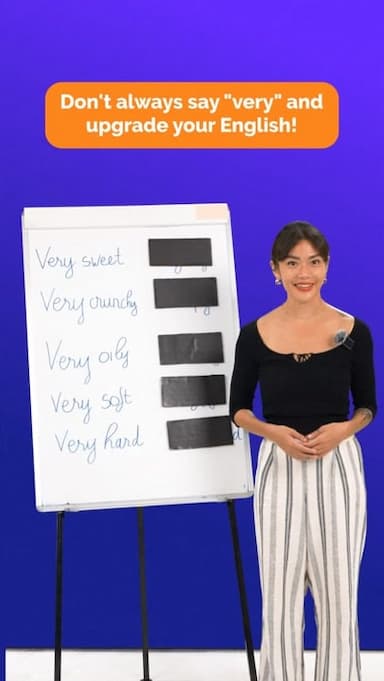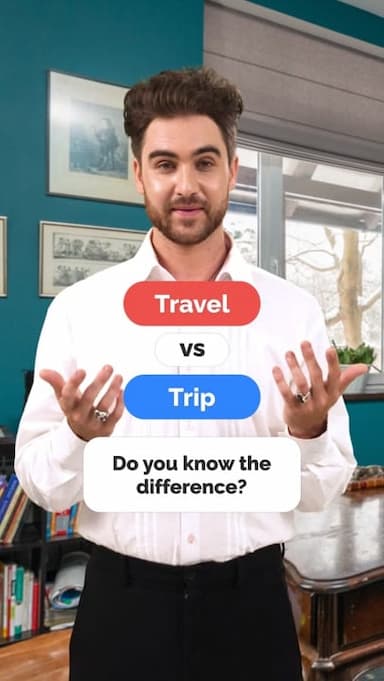Understanding -ed vs -ing Adjectives in English
Adjectives that end in -ed describe a person's feelings or state:
- I am tired.
- She’s bored.
- He is excited.
These forms express how someone feels. For example, "I am bored" means that you are feeling boredom.
Adjectives ending in -ing describe what causes those feelings, which can be a thing or a person:
- The movie was boring.
- The concert was exciting.
- She is so annoying.
These forms explain the cause of the feelings. For instance, "The movie was boring" means that the movie made you feel bored.
Here’s a helpful sentence that uses both forms: "The presentation was so boring that many people in the audience felt bored and disinterested.".
By understanding and practicing these forms, you can improve your English and communicate more effectively. Watch the video and try making your own sentences with -ed and -ing adjectives to solidify your understanding.
Get the full app experience
Engaging video lessons and fun quizzes to help you ace your English.
Improve your English Level
Improve your pronunciation
Practice conversations
Sharpen your listening Skills
Fix common mistakes in English
Learn Grammar in a fun way
Expand your English Vocabulary
Coming soon to Google Play

© 2023 fluentjoy.com











